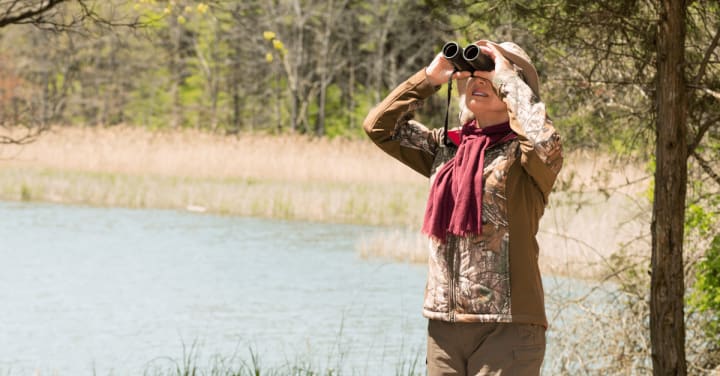The right dementia care facility in Rockwall, TX, can make a real difference in the daily life of your parents or your loved one through personalized support and meaningful activities. Research confirms that seniors who enjoy regular hobbies feel less stressed, show better moods and experience fewer depression symptoms. These benefits become especially important for those facing memory challenges.
Creative pursuits like art naturally boost dopamine levels, enhancing focus while easing stress.
Meaningful activities also promote independence, strengthen physical and mental well-being, develop practical skills and encourage personal development.
Why Hobbies Matter in This New Chapter
Moving into retirement or senior living marks a major life transition. Quality memory care communities in Rockwall recognize hobbies serve as vital tools for enriching life during this significant stage, not just ways to pass the time.
Boosting mental and emotional well-being
Evidence consistently shows the impressive mental health benefits of hobby engagement. Hobbies activate positive psychological responses through:
-
Creative expression that stimulates the senses
-
Mental engagement that preserves brain function
-
Goal achievement that lifts confidence and mood
-
Rhythmic activities that lower stress hormones
These benefits hold special value for seniors facing cognitive changes, helping maintain mental clarity and emotional balance.
Creative and Gentle Hobbies to Explore
-
Art and painting for self-expression
Visual arts give seniors a powerful channel to communicate emotions that words often cannot capture. Research reveals that seniors engaging in artistic activities show improved cognitive functions, better mood and lower stress levels. Art becomes a therapeutic outlet through colors and textures, helping seniors process complex feelings and precious memories.
Benefits of art therapy for seniors include:
-
Increased spatial awareness and better recall of visual information
-
Improved fine motor skills and coordination
-
Enhanced subjective well-being and positive feelings
-
Music and singing as emotional outlets
Music reaches far beyond simple entertainment for older adults. Studies show an impressive 98% of adults ages 50 to 80 receive health benefits from music, with 75% experiencing stress relief and relaxation. Music naturally stimulates cognitive abilities, including attention and memory, while singing promotes respiratory health through its rhythmic breathing patterns.
-
Creative writing and journaling
Journaling provides seniors a structured way to reflect on thoughts and experiences, creating a valuable emotional release. Regular writing improves memory in multiple ways – reading past entries triggers recollections, while creating new entries enhances recall abilities. Expressive writing naturally reduces stress and lifts mood by allowing seniors to freely share their feelings.
-
Photography for storytelling
Photography invites seniors to explore their surroundings and capture meaningful moments. This visual medium preserves memories and creates lasting legacies. Photography also strengthens social bonds as seniors share their images with loved ones. Even those with limited mobility find creative fulfillment in photographing everyday objects or nature views from their windows.
-
Knitting and fiber arts for calm focus
Textile crafts like knitting and crocheting produce remarkable calming effects. These repetitive activities work similarly to meditation, with research showing they can lower heart rate by about 11 beats per minute. Impressively, studies suggest engaging in crafts like knitting reduces the risk of a mild cognitive impairment.
Finding new hobbies remains essential for maintaining quality of life, particularly in specialized memory care settings in Rockwall, TX.
-
Gardening with adaptive tools
Seniors continue enjoying gardening through specially designed tools that minimize strain on joints and muscles. These helpful implements make gardening possible despite arthritis or strength limitations:
-
Ergonomic garden tools with comfortable grips need less pressure while easing hand and wrist fatigue
-
Long-handled tools prevent excessive bending and kneeling
-
Raised garden beds let seniors garden while seated or with minimal bending
Keeping gardens small works best—focus on manageable plots and easy-care plants rather than large gardens. Rolling garden stools or kneelers with handles provide wonderful additional support.
-
Swimming and water aerobics
Water activities offer remarkable benefits as buoyancy supports about 90% of body weight. Studies show senior participants who completed a 12-week aquatic exercise program significantly improved muscle strength, flexibility and daily function.
Swimming's horizontal position improves circulation, while water resistance builds muscle strength. Water aerobics classes provide structured, social exercise for those with limited swimming experience without requiring swimming skills.
-
Bird watching and nature walks
Birdwatching beautifully combines gentle movement with cognitive stimulation and sensory engagement. This peaceful activity sharpens vision, while birdsongs enhance hearing. Many seniors find nature connections reduce stress and create calm.
Nature walks on smooth trails offer heart benefits without stressing joints. Starting with short distances on well-maintained paths helps participants of all abilities succeed.
Your New Chapter Through Meaningful Activities
Hobbies are potent tools for joy, growth and connection throughout our lives. Engaging in meaningful activities offers seniors excellent benefits during this new chapter.
Research consistently shows that pursuing interests later in life improves cognitive function, emotional well-being and overall quality of life.
Finding a supportive environment makes all the difference when exploring new hobbies. Experience firsthand how their intimate setting fosters connections and new interests by calling (214) 607-9277. Schedule a tour at Iris Memory Care of Rowlett to discover how their dementia care approach supports your loved one's journey with dignity and joy.
FAQs
Q1. What are some suitable hobbies for seniors in their 70s?
There are many enjoyable hobbies for seniors, including walking, swimming, gardening and creative pursuits like painting or knitting. It is about choosing activities that match your main interests and physical abilities, providing mental stimulation and social engagement.
Q2. What are the benefits of taking up hobbies in later life?
Engaging in hobbies during your senior years can boost mental and emotional well-being, encourage independence, reduce isolation and provide a sense of purpose. Art, music or gentle exercise can improve cognitive function, mood and overall quality of life.
Q3. How can seniors overcome hesitation when starting a new hobby?
To build confidence when starting a new hobby, begin with achievable goals and gradually increase complexity. Joining classes or groups can provide support and motivation. Remember to be patient with yourself, use adaptive tools if needed and celebrate your progress along the way.



